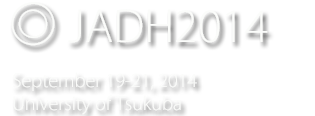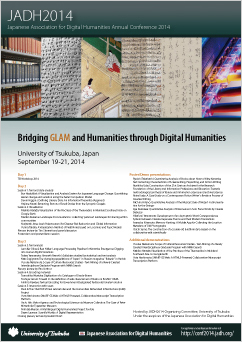Session 5-1
NeCTAR Virtual Laboratories and the Humanities Networked Infrastructure (HuNI) Project
- Paul Arthur (University of Western Sydney)
- Deb Verhoeven (Deakin University)
This paper discusses the complexities and challenges of aggregating data in one of the most ambitious multidisciplinary ‘virtual laboratory’ projects yet to be undertaken in digital humanities worldwide. The Humanities Networked Infrastructure Project (HuNI) is one of the first large-scale eResearch infrastructure projects for the humanities in Australia, funded through the government's National eResearch Collaboration Tools and Resources (NeCTAR) scheme. The broad goal of the virtual laboratories program is goal is to create interoperable databases and tools that utilise high-speed data networks, cloud and super-computing. Initially using a Linked Open Data approach, HuNI set out to align and disambiguate information originally stored across 28 national cultural datasets, including the Australian Dictionary of Biography, the Auslit database and the biographical Dictionary of Australian Artists, making them discoverable through a single interface. The datasets brought together comprise more than 2 million authoritative records relating to the people, objects and events that make up the country's rich heritage. This paper also comments more widely on the implications of such large infrastructure projects for research across disciplines.
The National eResearch Collaboration Tools and Resources project (NeCTAR) is a $47 million Australian Government, Super Science project, financed by the Education Investment Fund. The University of Melbourne is the lead agent appointed by the Commonwealth Government. The Australian Research sector has committed $54 million as co-investment to the NeCTAR project, resulting in NeCTAR injecting $101 million to Australia's research infrastructure. The presenter is a member of the NeCTAR Project Board, and was the Australian National University lead researcher for the HuNI project in 2012–13.
- Keywords
- e-research, interoperable databases, cultural datasets

